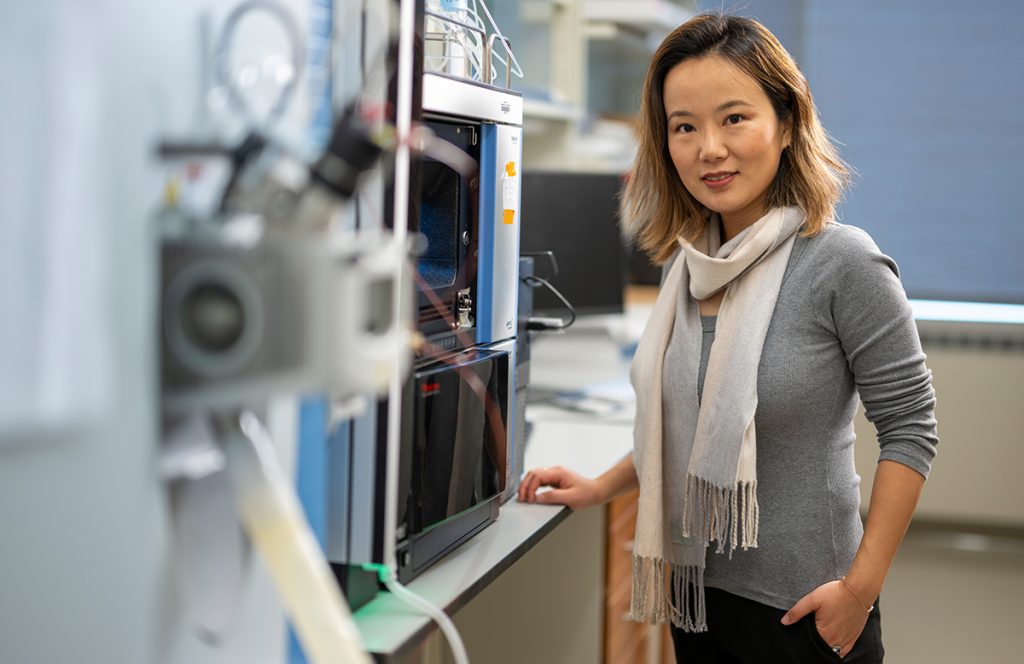29 Mar Pathways to Immunity

Jing Fan, assistant professor of nutritional sciences at CALS and investigator at the Morgridge Institute for Research (MIR), in her MIR lab at the Discovery Building on the UW campus. Photo by Morgridge Institute for Research/David Nevala
In the search for better ways to fight disease, Jing Fan is pushing the boundaries of immunometabolism.
Jing Fan recalls the first science experiment she ever performed. She was a kindergartener in Beijing, China, and her class made glue out of flower petals. After soaking the petals in water for some time, their components broke down into a sticky solution.
“It’s about chemistry,” she says, reflecting on the process and what she observed. “The world is fascinating, and I just want to ask ‘Why?’”
As an assistant professor of nutritional sciences in CALS and an investigator at the Morgridge Institute for Research, Fan continues to pursue that question through the exploration and understanding of metabolism. Metabolism refers to the chemical reactions that create the energy and resources needed to sustain life. It is a fundamental process that occurs in every cell of every living organism. When the process is impaired, it can become the underlying problem in many health issues, from diabetes to cancer.
“Understanding metabolism in specific systems will give us insights into general metabolic regulation,” says Fan. “It’s a very fundamental process; but, in terms of how cells use metabolism and their metabolic resource, it’s very diverse. It takes an interdisciplinary approach to study it, so it’s very fun.”



